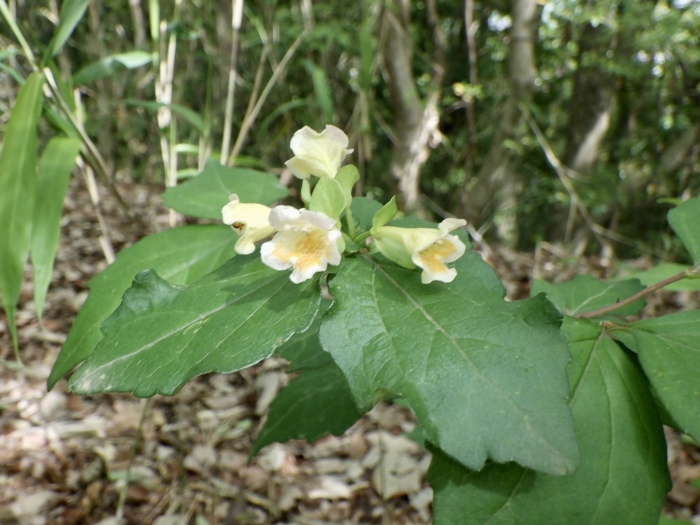Weigela
(Diabelia serrata)
Weigela (Diabelia serrata)
/
/

© りなべる
CC BY 4.0
Image By:
© りなべる
Recorded By:
Copyright:
CC BY 4.0
Copyright Notice:
Photo by: © りなべる | License Type: CC BY 4.0 | License URL: http://creativecommons.org/licenses/by/4.0/ | Uploader: re_nebel | Publisher: iNaturalist |




Estimated Native Range
Summary
Diabelia serrata, commonly known as Weigela or Serrate Diabelia, is a deciduous shrub native to Eastern Asia, specifically found in a variety of habitats including forest margins, open woodlands, and grasslands. It exhibits a moderate growth rate and typically matures to a height and width of 2-4 feet (0.6-1.2 meters). The plant features ovate to lanceolate leaves with serrated margins and bears clusters of tubular flowers that are white or pink and notably showy, blooming profusely in late spring to early summer.
Diabelia serrata is valued for its ease of maintenance and the ornamental quality of its flowers, which attract pollinators such as bees and butterflies. It is commonly used in residential landscapes for border planting, as a specimen in garden beds, or as part of a mixed shrub border. The shrub thrives in full sun to part shade and prefers well-drained loam or clay soils, although it is adaptable to various soil types. Regular watering is important, especially during dry periods. While generally disease-resistant, it can be susceptible to fungal diseases in overly moist conditions. Pruning immediately after flowering can help maintain its shape and promote vigorous growth. Diabelia serrata is not known for aggressive roots or significant invasiveness, making it a suitable choice for gardens and urban environments.CC BY-SA 4.0
Diabelia serrata is valued for its ease of maintenance and the ornamental quality of its flowers, which attract pollinators such as bees and butterflies. It is commonly used in residential landscapes for border planting, as a specimen in garden beds, or as part of a mixed shrub border. The shrub thrives in full sun to part shade and prefers well-drained loam or clay soils, although it is adaptable to various soil types. Regular watering is important, especially during dry periods. While generally disease-resistant, it can be susceptible to fungal diseases in overly moist conditions. Pruning immediately after flowering can help maintain its shape and promote vigorous growth. Diabelia serrata is not known for aggressive roots or significant invasiveness, making it a suitable choice for gardens and urban environments.CC BY-SA 4.0
Plant Description
- Plant Type: Shrub
- Height: 2-4 feet
- Width: 2-4 feet
- Growth Rate: Moderate
- Flower Color: White, Pink
- Flowering Season: Summer
- Leaf Retention: Deciduous
Growth Requirements
- Sun: Full Sun, Part Shade
- Water: Medium
- Drainage: Medium
Common Uses
Border Plant, Butterfly Garden, Deer Resistant, Groundcover, Low Maintenance, Potted Plant, Showy Flowers
Natural Habitat
Native to forest margins, open woodlands, and grasslands in Eastern Asia
Other Names
Common Names: Serrate Diabelia
Scientific Names: , Diabelia serrata, Abelia gymnocarpa, Abelia serrata, Abelia serrata f. lucida, Abelia serrata var. glaberrima, Abelia serrata var. viridis, Linnaea serrata, Linnaea serrata var. hegii,
GBIF Accepted Name: